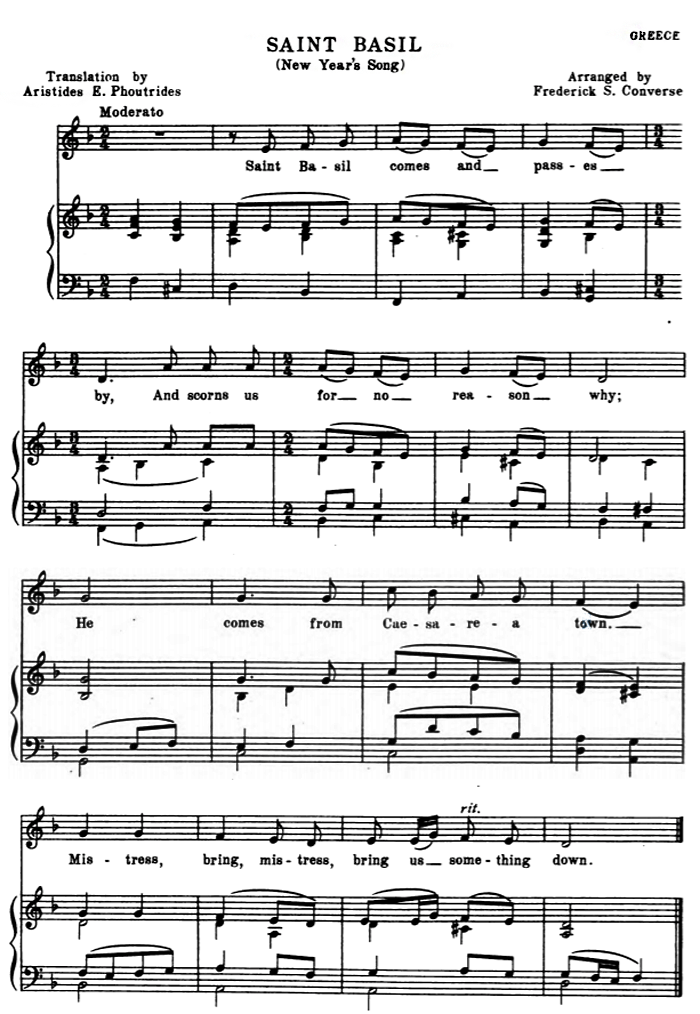St. Basil
This is an English version of a Greek New Year's song called Αρχιμηνιά κι Αρχιχρονιά. Saint Basil is like a Greek Santa Claus who brings gifts to the children on New Year's Eve.
St. Basil
New Year's Song
Saint Basil comes and passes by,
And scorns us for no reason why;
He comes from Caesarea town.
Mistress* bring us something down.
He carries pen and paper white,
And sugar candies sweet and bright;
He brings his pen and ink for writing.
You should see me in the fighting!
The pen, it wrote and scribbled down;
He told our fortunes with a frown.
And then the paper spoke a trifle;
Yes, we swear by our gold rifle:
"A new month's eve, a New Year's Eve,
Sweet rosemary, I beg your leave;
Joy be your lot the whole year round,
May your house be holy ground.
"The new year follows on Christ's birth:
So holy Christ who walks the earth
May bless you, every girl and boy,
And fill all good hearts with joy."
Notes
*The words in italics are repeated.
Translation of Greek song by Aristides Evangelus Phoutrides.

At the end of the recording, the last verse is repeated and sung in Greek. Here are the lyrics to the last verse in Greek, followed by the pronunciation:
Αρχή που βγήκε ο Χριστός
άγιος και Πνευματικός,
στη γη, στη γη να περπατήσει
και να μας, και να μας καλοκαρδίσει
Pronunciation:
Archí pou vyíken o khristós
áyios ke pneumatikós,
sti yi, yi na perpatísi
ke na mas, ke na mas kalokardhísi!
The accents are on the stressed vowels.
ch as in German "ich" (an unvoiced "y" in "you")
i = always "ee"
ou = oo
y: as in "you"
"e" = like in "bed"
"eu" = éoo
Kh: like German "ch" in "Bach" or Scottish "ch" in "loch"
s: always hard
dh: like the English "th" in "this, that".

























